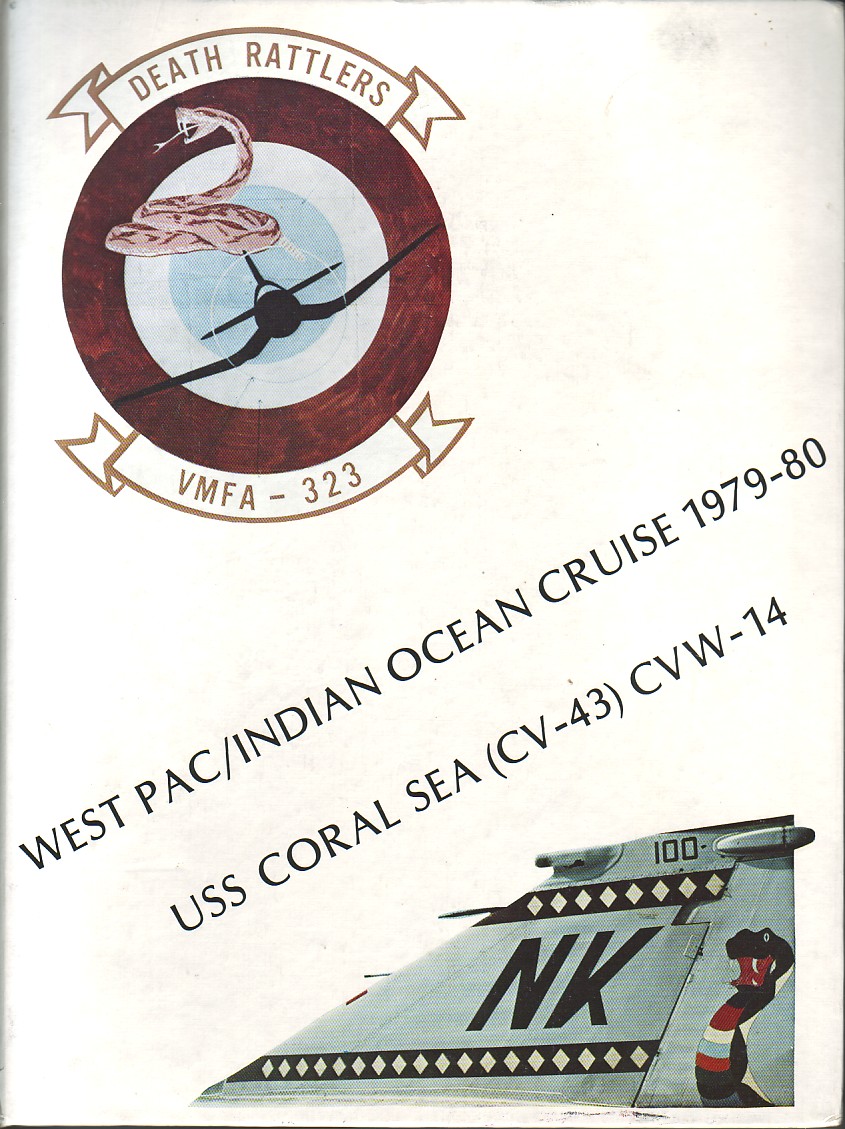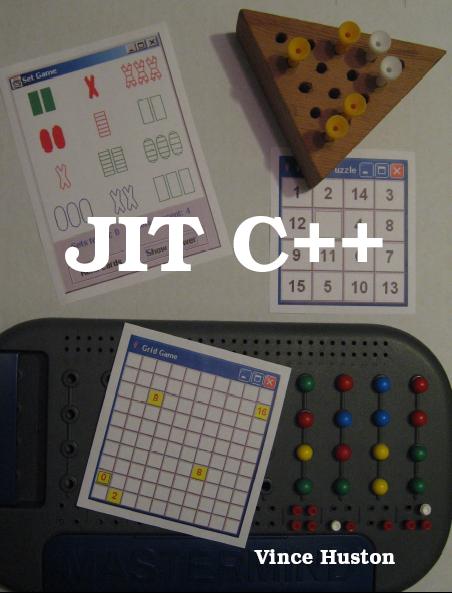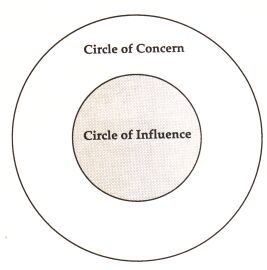
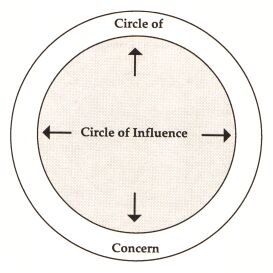
On the other hand, the more you apply yourself to the inner circle – by helping, serving, listening, befriending, working – the more influence (aka power) you accumulate. People view you in a positive light, they want you as a team member, they seek your input. Your inner circle squeezes out the outer circle.


Covey goes on to suggest two kinds of power: conferred vs collected, or granted vs grown. The first kind is awarded by the organization, and is a zero-sum context. It is finite – only one person can be the boss. For you to be the boss, no one else can be the boss.
The second kind is power that you accumulate informally. It is not zero-sum; you can generate as much of this kind of power for which you are willing to labor. The more you volunteer, the more you grow, the more you innovate; the more influence you will wield.
Plebes have boundless opportunities for concern, or for influence. Which will you choose?
|
In the movie "An Officer and a Gentleman", the candidates that left the
program "dropped on request": the David Caruso character that panicked
in the dilbert dunker, and the David Keith character that went over the
cliff in the high altitude chamber. Gunnery Sergeant Foley didn't kick
Mayo out of the program, he made a personal project out of getting him
to DOR. The DI's goal was to get Mayo to quit on himself. In most situations in life, the authorities will work with the person that refuses to accept defeat. In many situations, it is the journey (not the outcome) that is the primary objective. In the Electrical Engineering program there is the senior project. I found a design for a radio, and did my best to implement it. It didn't work, and I was hopelessly over-matched. I made a really nice cabinet for the woeful circuitry, and was hoping for a 'D' in the course. I got a 'C' – demonstrating serious effort apparently counted more heavily than a working project. |
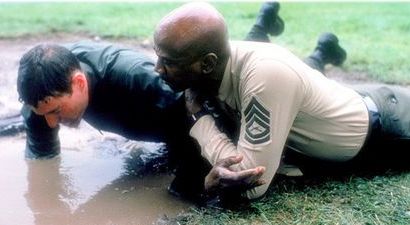 |
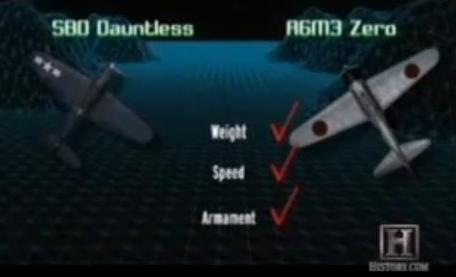
| The History Channel's "Dogfights" series presents the remarkable story of Lt Stanley "Swede" Vejtasa. [ part 1 part 2 ] On 8 May 1942, he was flying an SBD (dive bomber) and found himself in a 25-minute battle for survival against three Japanese Zeros. The SBD was not designed for dogfights; it was designed to withstand lots of damage in a near-vertical dive, release its bomb at 1200 feet, and pull out of the dive at 9 Gs. The Zero was light, agile, twice as fast, and had better armament. But a 9 G turn would tear its wings off. |
|
The Zeros could fly circles around the lumbering SBD, and roll in
on its 6 o'clock at will. The only thing Lt Vejtasa had going for
him was his plane's ability to pull 9 Gs, turn on a dime, and cause
the attacker to overshoot. For 17 minutes, he defeated each rear quarter attack with a violent high-G turn, and then met the next attacker head on. |
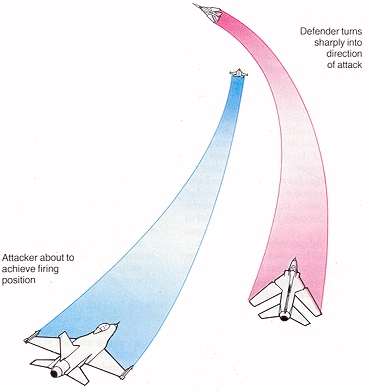
|
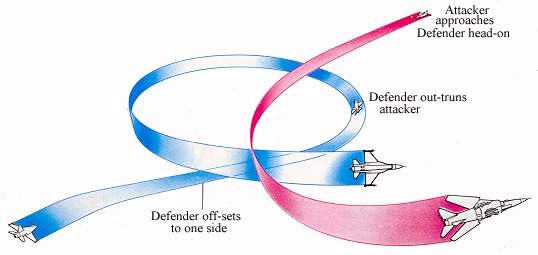
|
With each head-on pass, Lt Vejtasa would attempt to gain an advantage
by out turning the adversary. Eventually, one of the Zeros relaxed
in the turn; whereupon Vejtasa rolled into its rear quarter, and put
rounds on the target. Shortly thereafter, a second Zero went vertical with insufficient passion. Vejtasa honked on the Gs, put the opponent in extremis, and recorded a second kill. |
|
The third Zero decided to ram the SBD on the next head-on pass. At the
last second, Vejtasa jerked the aircraft up, stood it on the left wing tip,
and miraculously sliced the Zero's wing. The Zero caught fire and came
apart. Lt Vejtasa, through professional preparation, situation awareness, strength of will, and discipline; not only survived – but destroyed all three attackers. |
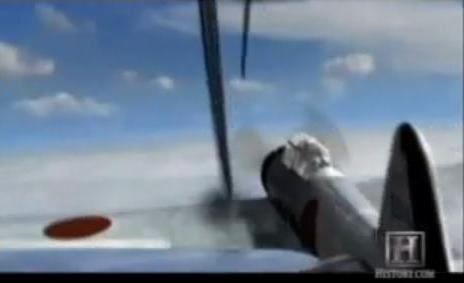 |
Only you have the power to DOR. Don't quit on yourself. And don't sweat getting kicked out.
Never give in. Never give in. Never, never, never, never – in nothing, great or small, large or petty – never give in, except to convictions of honor and good sense. [Winston Churchill]
When our F-4 squadron went aboard the Coral Sea, our S-4 Officer conceived of the idea to put our squadron patch and mascot "in linoleum". He single-handedly crafted these priceless and everyday expressions of squadron pride.
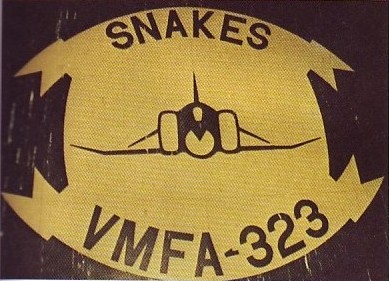
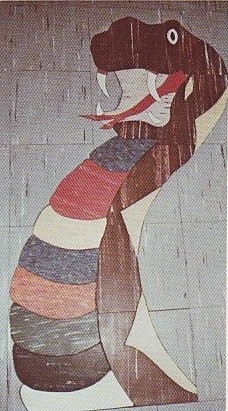
| The E-Systems logo is an abstraction of the letter 'E' and three 'S's. I imagined that the logo could be merged with the virtue "excellence". This piece was displayed proudly in the front office of the Software Engineering department. |
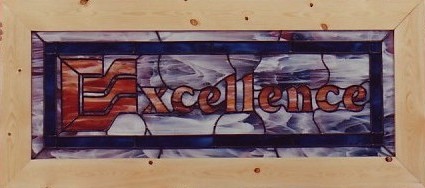
|
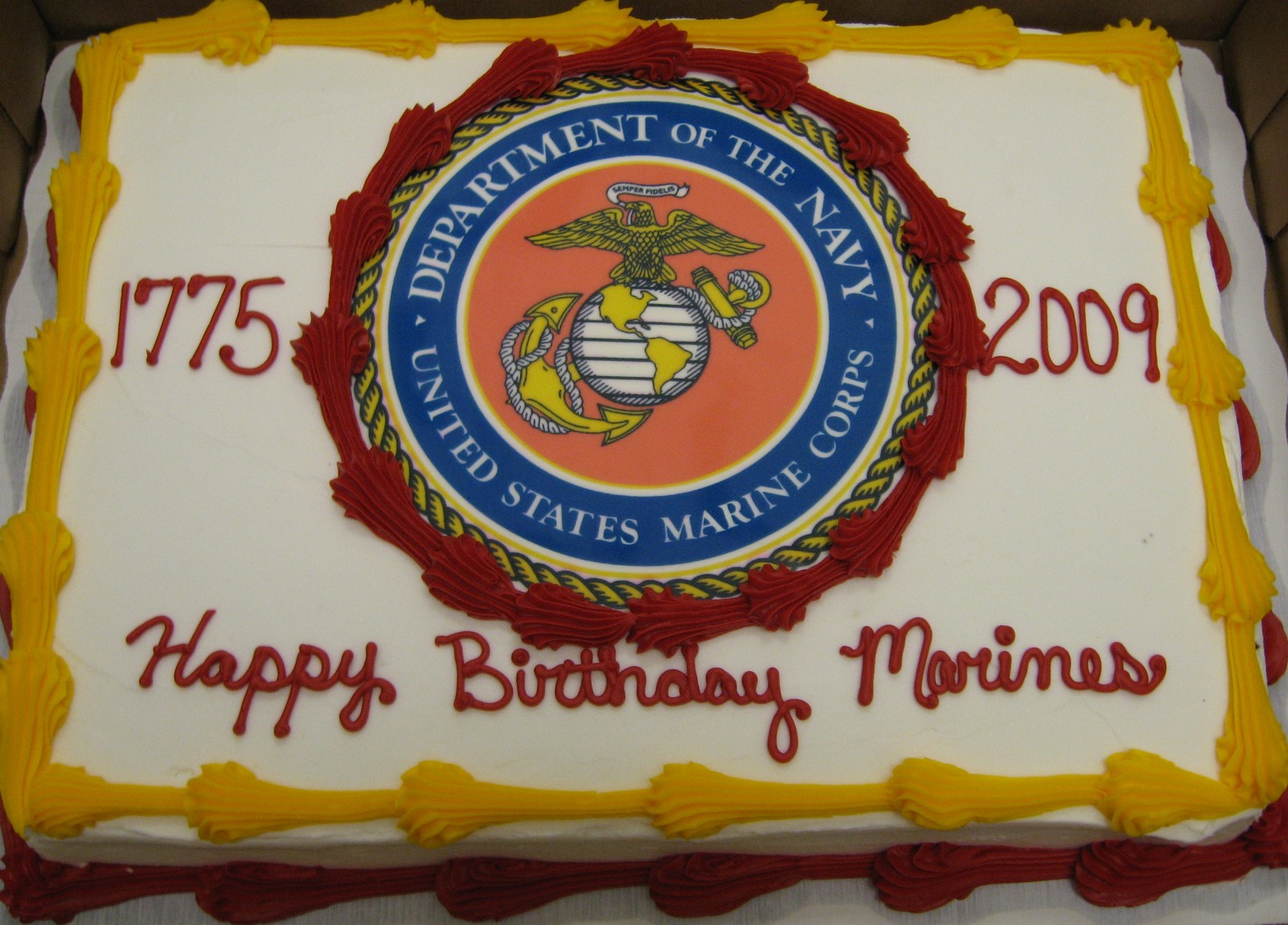
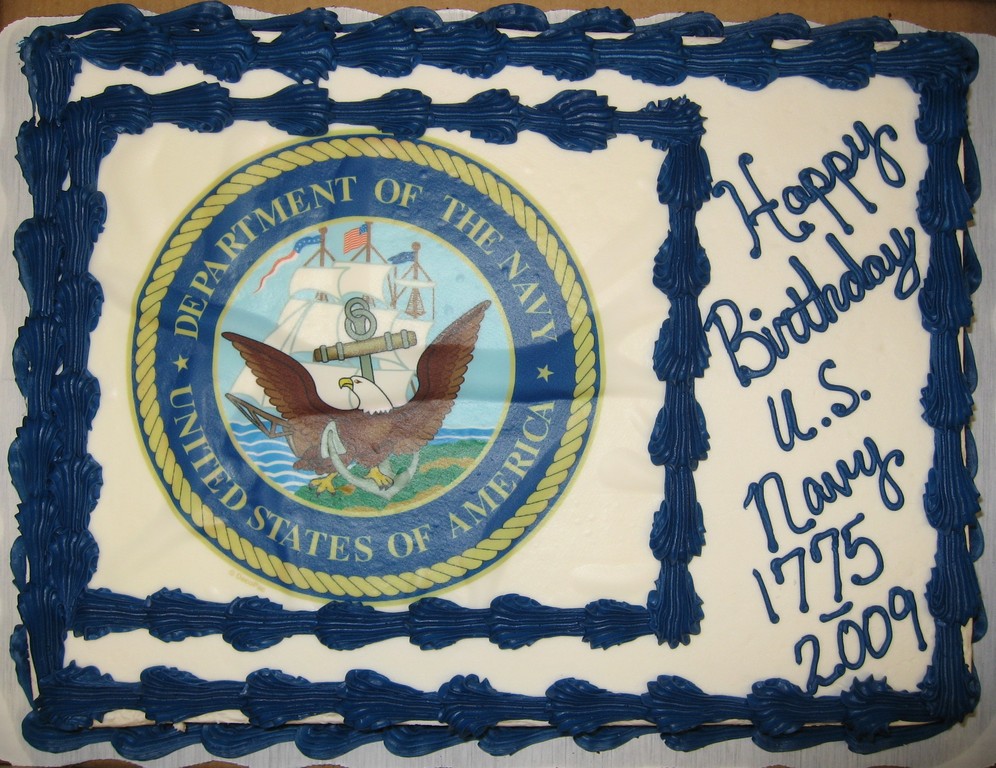
For $20, you can get an outstanding cake from Sam's Club with an edible overlay from a large catalog of images they support.

I learned that both of our Air Force veteran co-workers were not going to be in town for the Air Force's birthday. In the spirit of "find reasons to make a big deal out of little things", I brought in a bunch of flight gear, and suggested a dress-up photo op. [Aside: I was surprised at how reticent my highly paid engineer co-workers were to participate in group silliness.]

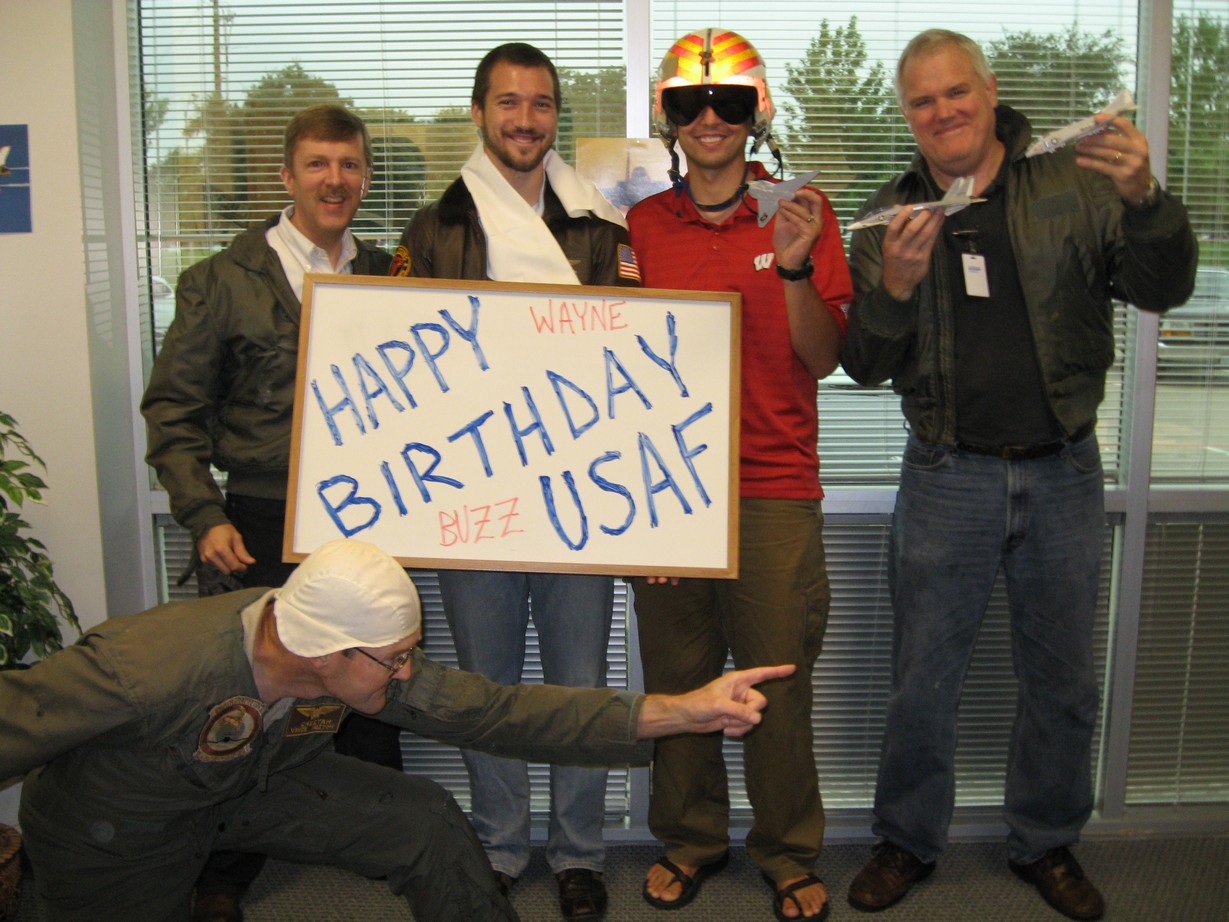
| Drama is an excellent vehicle for expressing a sentiment. The actual event can be simple or austere, if it is accompanied by drama. An amplifying or endearing effect is readily achieved. [Here, the hapless engineer is attempting to call attention to the stone knives and bear skins technology that needs addressing.] |

|
As a junior officer, you are the tip of the spear. Even as a midshipman, you are the raison d'etre of the institution, and the future of the Navy. You may view yourself at the bottom of a very daunting food chain; but if you take "the longer view" with reflection and insight, your position at the "eye of the storm" affords a perspective that is invaluable. The four-year window that is the intersection between your life's pilgrimage and the Academy's legacy offers immense leverage if exercised with insight and vision. You are the center of a universe that is as compelling as your imagination and innovation can make it.
Keep your eyes open and imaginations active. Identify events and experiences. Reflect on their significance. Interpret their implications. Derive lessons learned. Synthesize orthogonal insight. Write with an eye toward craftsmanship and serendipity.
Innovation – the ability to see what everyone else has seem, and think what nobody else has thought.
LTjg Atwood has been published multiple times in Shipmate doing just that (Lives Less Ordinary, SWOS-in-a-Box, Bygones). This excerpted piece was somewhat eclectic, but it presented a very thoughtful tapestry, and suggested that "military members are honored to give our selfless service to a thankful nation."
You can observe a lot by just watching. [Yogi Berra]
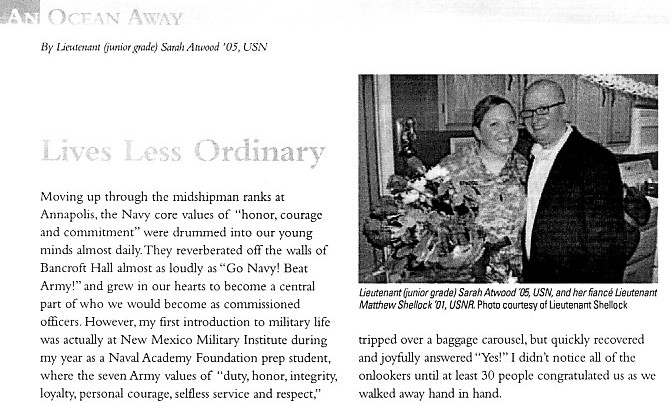
It might be argued that identifying the subject for a writing project is half the battle. Here is a list of titles that might spawn your own ideas. This is a fraction of the publications of Admiral James Stavridis – the first member of the class of '76 to pin on four stars. The number and diversity of journals is quite instructive. The Admiral started publishing three years after we graduated. Twelve articles were produced in 1984 and 1985. It is note-worthy to imagine a relationship between his prolific writing and his successful career.
Anyone can do the same at any level of temporal or organizational granularity. You could create a "cruise book" for: summer training, an academic year, an academic department, an ECA, a sports season, a conference, a deployment, a tour, a mentor, a company.
The options for publishing used to be somewhat expensive. Now, there is "publish/print on demand" (POD). Companies like lulu.com make self-publishing a do-it-yourself opportunity. When my father-in-law passed away, I resurrected the book he was writing, added a bunch of pictures, and published it at Lulu. You download a Microsoft Word template, insert your prose and pictures, and follow their Web interface to produce a print-ready product. Anybody can go to their Web site and purchase a copy for seven dollars (5"x8", 125 pages, black and white). I have started my own book on just-in-time C++.
